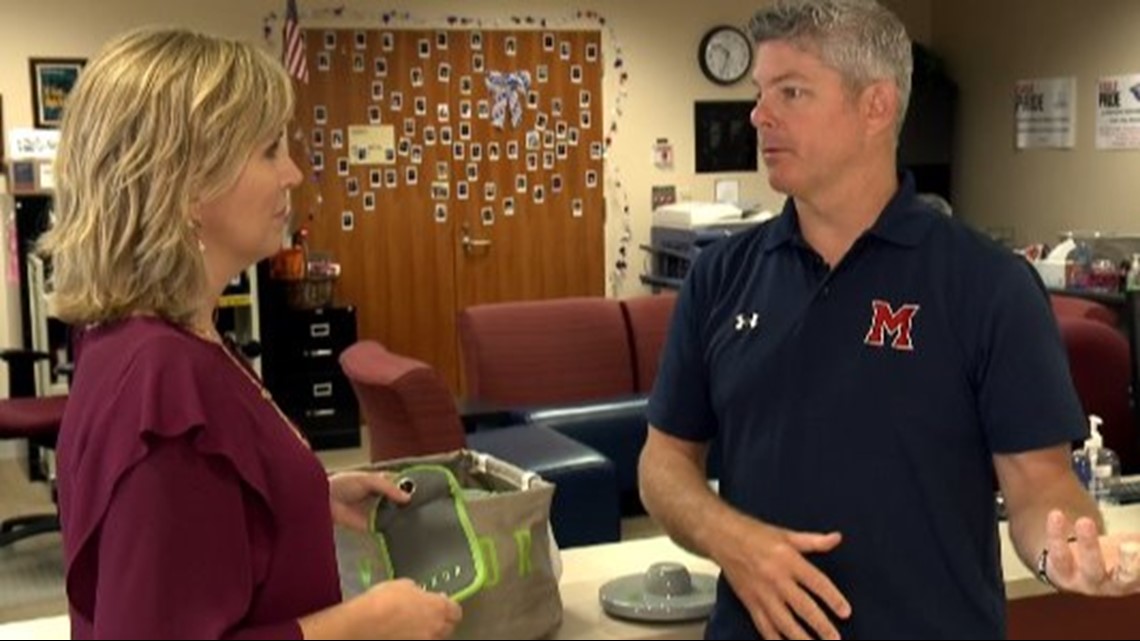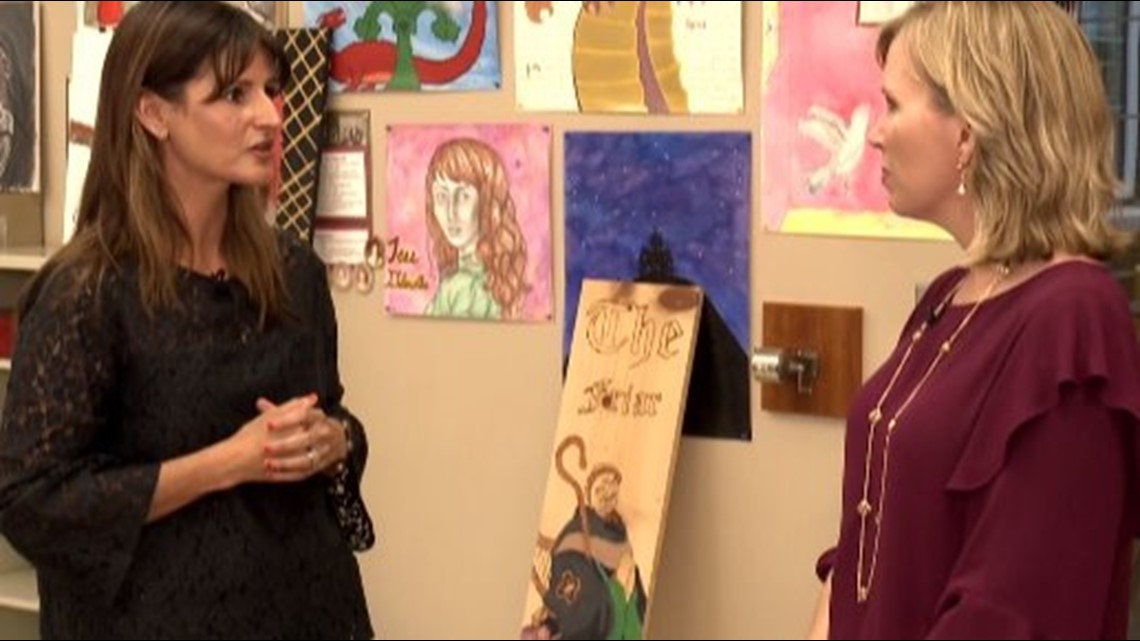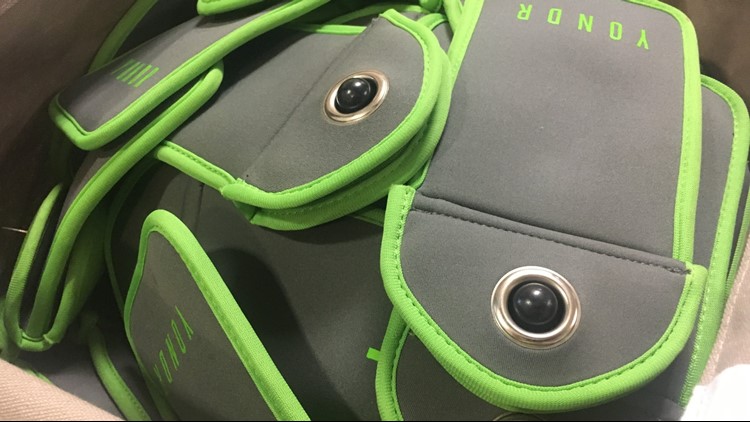Milton High School is one of the hundreds across the country using a special system of pouches to keep student smartphones locked up during class.
It's called Yondr, and it started four years to create phone-free spaces at concerts, comedy shows, courthouses, and schools.
Milton Principal Brian Jones ordered 10 sets last winter and 10 more for the new school year.
"What is the advantage of this kind of system versus just telling kids to turn off the phone or collecting them in the teacher's desk," 11Alive's Jennifer Leslie asked Jones.


"If you have a class of 35 kids, and 20 of them don't turn their phone off, and then you have to deal with each one, that takes time away from what you need to do and what you're really there for," Jones explained.
Yondr uses pins and magnets to keep smartphones locked in pouches.
When students get to class, they put their phone in a pouch, close the pin to lock it and take it to their desks. The phone stays locked in the pouch during class.
When class is over, they take the pouches to an "unlocking base" that uses a magnet to release the pin and their phone.
Jane O'Brien, an 11th grade English teacher at Milton High, said the pouches make a big difference.
"They eliminate the distraction of the device," she said.


O'Brien noticed more eye contact from students immediately after introducing Yondr.
"It was almost uncomfortable at first to have all 35 sets of eyes, but our discussions became more informative," O'Brien explained. "The contribution was heightened, so it was quite positive, actually."
Yondr is working with teachers at Westlake High School to test the system in a couple of classrooms this semester.
The costs of Yondr vary depending on the size of the school, but the average is about $25 per student per year.



